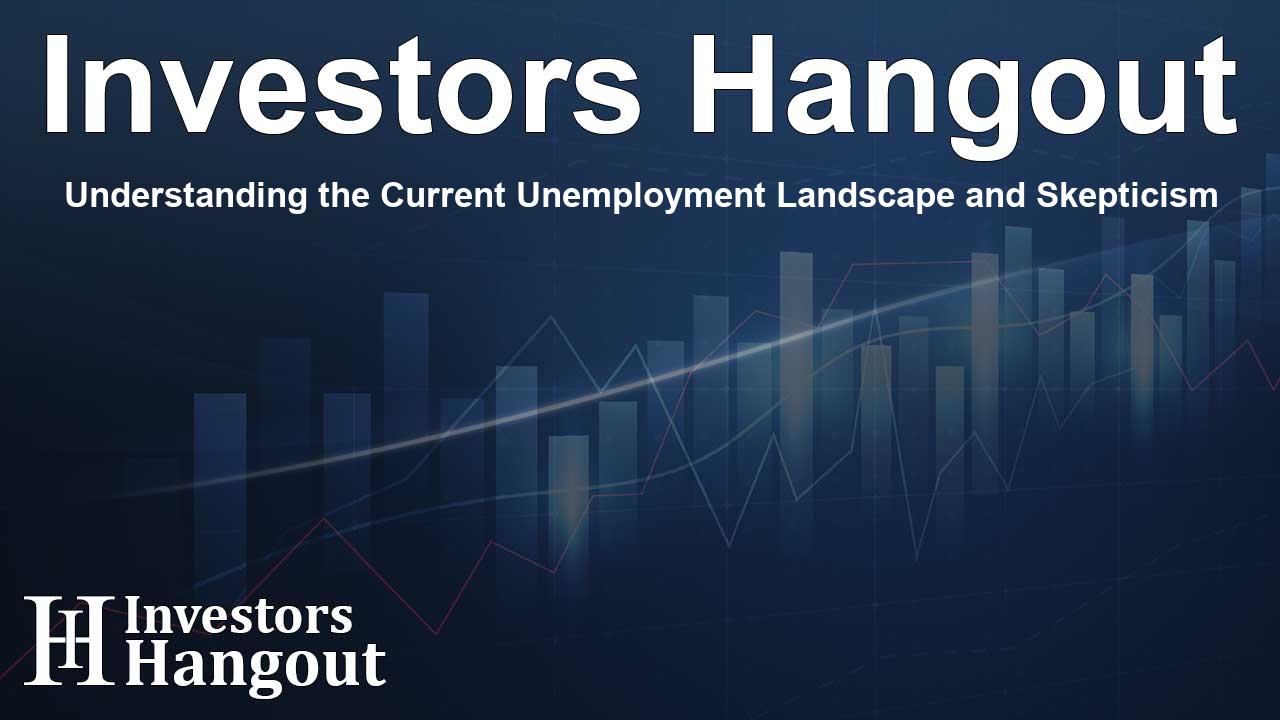Understanding the Current Unemployment Landscape and Skepticism

Understanding Public Views on Unemployment Rates
Recent reports have shown a decline in the unemployment rate, which now stands at 4.2%. This suggests that the labor market remains strong, even though job growth has been slower than anticipated. But how do everyday Americans really feel about these numbers?
Shifting Public Concerns
Interestingly, recent trends indicate a significant drop in public interest regarding unemployment-related searches, as evidenced by Google Trends data. Searches for terms like “unemployment” and “unemployment benefits” have reached their lowest points in years, suggesting a change in public concern.
The Disconnect Between Data and Daily Life
This decline in search activity carries an important implication: many Americans may no longer see unemployment statistics as an urgent issue. This trend stands in stark contrast to the heightened concern observed during economic downturns, such as the COVID-19 pandemic.
The Impact of Economic Narratives
The skepticism surrounding government data isn't a new phenomenon. Influential figures in the business sector, like former General Electric CEO Jack Welch, have questioned the reliability of economic statistics, labeling them as biased. This skepticism seems to have seeped into public opinion, fostering a broader sense of distrust.
Investigating the Possible Disconnect
The current disinterest in labor reports may imply that fears of an impending recession could be overstated. Evidence suggests that the labor market may not be as bleak as various narratives suggest, highlighting a significant gap between perceived economic signals and actual conditions.
Economic Indicators Versus Market Reactions
This situation raises an intriguing question: are financial markets truly responding to economic indicators, or are they trapped in a cycle of reactions fueled by deep-rooted skepticism?
Looking Beyond Traditional Indicators
As we navigate this intricate economic landscape, it is essential to look beyond conventional data sources. The stable unemployment figures might indicate that the economic environment is not as dire as it appears, hinting at a so-called hidden job market that continues to thrive.
Conclusion: Striking a Balance
While skepticism toward government data is common, it is crucial to recognize that these indicators may hold more validity than many believe. Striking a balance between caution and a constructive outlook can lead to a more nuanced understanding of this evolving economic landscape.
Frequently Asked Questions
What are the current unemployment rates?
The most recent reports show that the unemployment rate has decreased to 4.2%, indicating strength in the labor market.
How does public interest in unemployment trends reflect economic sentiment?
The drop in search interest for unemployment-related terms suggests that the public may not view rising unemployment as a significant concern.
Why is there skepticism about government employment data?
Many people, influenced by prominent critiques from business leaders, believe that government statistics may be biased or misleading.
Could economic signals be overstated in the current climate?
Yes, there seems to be a disconnect; while economic indicators point to certain trends, public perception may be distorted by skepticism.
What should we consider when analyzing unemployment data?
Beyond traditional sources, it is helpful to examine alternative indicators that could provide a clearer view of the economic landscape.
About The Author
Contact Dylan Bailey privately here. Or send an email with ATTN: Dylan Bailey as the subject to contact@investorshangout.com.
About Investors Hangout
Investors Hangout is a leading online stock forum for financial discussion and learning, offering a wide range of free tools and resources. It draws in traders of all levels, who exchange market knowledge, investigate trading tactics, and keep an eye on industry developments in real time. Featuring financial articles, stock message boards, quotes, charts, company profiles, and live news updates. Through cooperative learning and a wealth of informational resources, it helps users from novices creating their first portfolios to experts honing their techniques. Join Investors Hangout today: https://investorshangout.com/
The content of this article is based on factual, publicly available information and does not represent legal, financial, or investment advice. Investors Hangout does not offer financial advice, and the author is not a licensed financial advisor. Consult a qualified advisor before making any financial or investment decisions based on this article. This article should not be considered advice to purchase, sell, or hold any securities or other investments. If any of the material provided here is inaccurate, please contact us for corrections.
